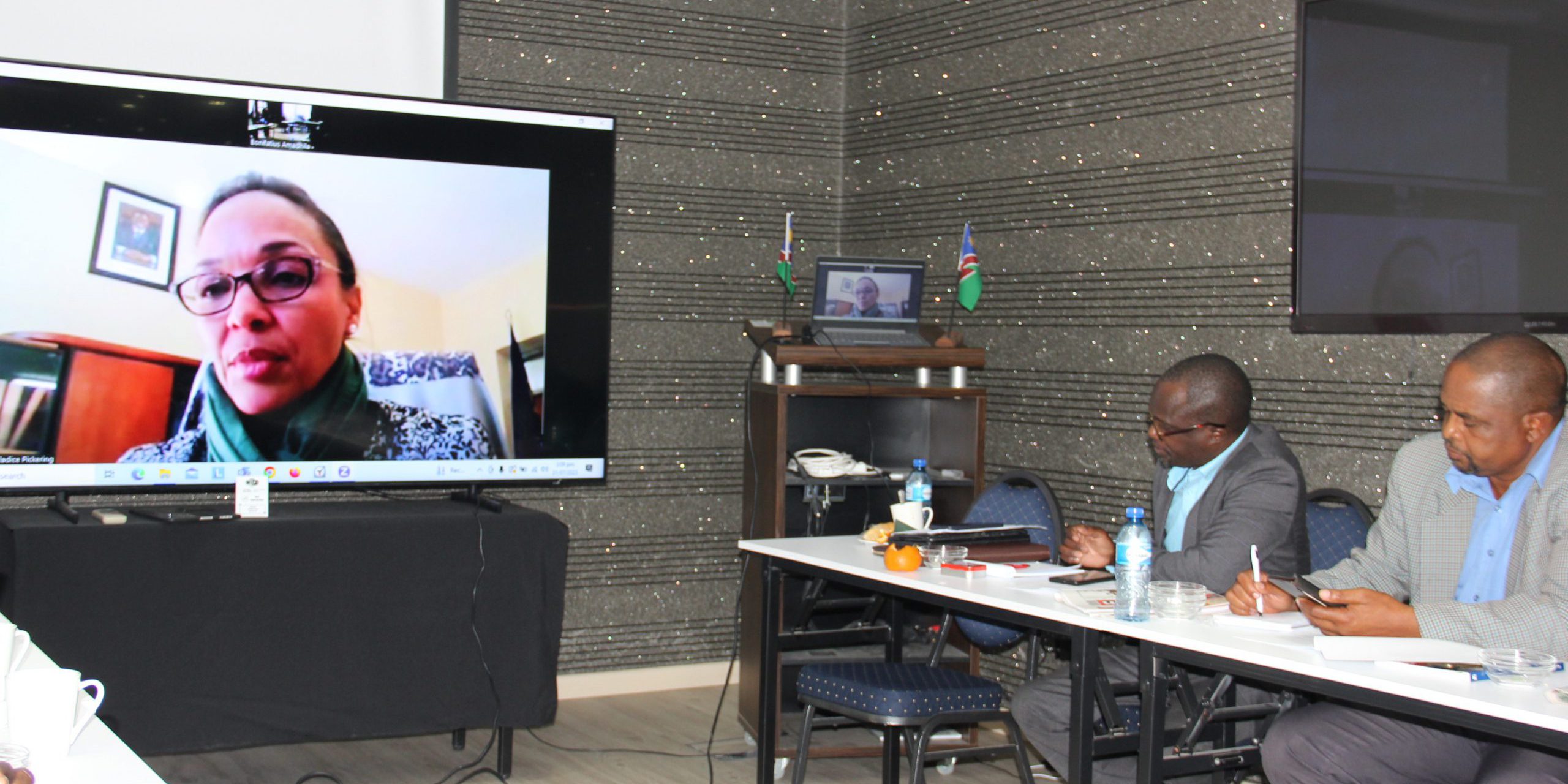The Parliamentary Standing Committee on Home Affairs, Security, Constitutional and Legal Affairs (HASCLA) concluded its oversight engagements with selected Organizations, Ministries and Agencies (OMAs) under their ambit in Swakopmund, Erongo Region. During a briefing with the Executive Director (ED) in the Ministry of Justice, the Committee probed on the delay in the promulgation of the long-awaited Witness Protection Act No. 11 of 2017 and the Whistle Blower Protection Act No. 10 of 2017. To this, ED, Ms. Gladice Pickering informed the Committee that an amount of N$50 Million was allocated to the operationalization of the two Acts for the 2023/2024 financial year but that priority was given to the Witness Protection Act, which is expected to be promulgated in September this year. In March 2024, an Acting Director will be appointed who will be charged with overseeing the office accommodation as well as finalise the staff structure of the Witness Protection Unit. Prior to this budget allocation, the Ministry was allocated N$ 7 Million in the 2019/2020 financial year towards the Act which was used for benchmarking and research. The delays, as per Pickering was mainly due to intelligence matters that need to be put in place prior to the operationalization of the office, which will be a new unit within the Ministry of Justice. In addition, other modalities such as the involvement of other state agencies, agreements with member states and the setting up safe houses in the country were also singled out as factors which delayed the process. Speaking on some of the shortcomings in the Witness Protection Act, specifically the centralised power of the Director of the Unit to determine who is to enter the witness protection program, Ms. Pickering clarified that these issues and more will be addressed in the regulations, which are still being finalised. The formulation of the regulations is in consultation with other functionaries such as the Prosecutor General and Inspector General of the Namibian Police.
With regards to the Whistle Blower Protection Act, which was tabled by the Ministry of Justice, there are modalities to be rectified as that mandate to protect whistle blowers already exists within the Anti-Corruption Commission (ACC). The Act may thus be amended to give back the responsibility thereof to the ACC. The Whistle Blower Protection Act is expected to be brought into effect in the upcoming financial year (2024/2025).
The Committee also further probed into the delays in the tabling of the High Court Amendment Bill of 2021 and the Magistrate’s Court Amendment Bill of 2021. The two Amendment Bills will address the issue of people losing their homes through execution in sales overseen by the courts. To this, the Executive Director in the Ministry of Justice said a shortage of experienced Legal Drafters is a cause for concern as this is a major reason to the slow finalization of Bills. However, she informed the Committee that the two Bills will be tabled in September 2023. “Out of the 19 Legal Drafters currently within the Ministry of Justice, only four are experienced enough to draft legislation without supervision”, said Pickering.
The stakeholder consultations included engagements with other OMAs in the constitutional and legal affairs fraternity. During this time, the Committee also met the Magistrates Commission to discuss staffing issues, backlog of cases and delays experienced in the conclusion of cases, particularly petty cases which has resulted in the overcrowding of holding cells, amongst other issues. Responding to questions during the engagement, Acting Chief Magistrate, Ingrid Uunengu stated that a successful Magistrates Commission requires the cooperation of all key players in the criminal justice system, including law enforcement, social workers, investigators, prosecutors, interpreters, other OMAS and the Magistrates themselves. The engagement also uncovered that there is a need for legal reforms to address the challenges experienced. Echoing the same sentiments was the ED of Justice, who said an inter-ministerial task team may be required to address the challenges within the justice, constitutional and legal affairs space.
During the engagement with the Office of the Ombudsman, Chairperson of the Standing Committee Hon. John Likando identified urban poverty and the repossession of houses by commercial banks, lack of housing and the exploitation of the country’s resources and minerals in terms of value addition as issues that need urgent attention. In his response, Ombudsman, Advocate Basilius Dyakugha stressed that the people must be able to benefit from the country’s natural resources to address this poverty, so that they enjoy in the abundant wealth of the country. Other OMAs the Committee engaged in during the period include the Anti-Corruption Commission, the Erongo Regional Court where they observed court proceedings as well as an inspection at the Namibia Ports Authority (Namport).







